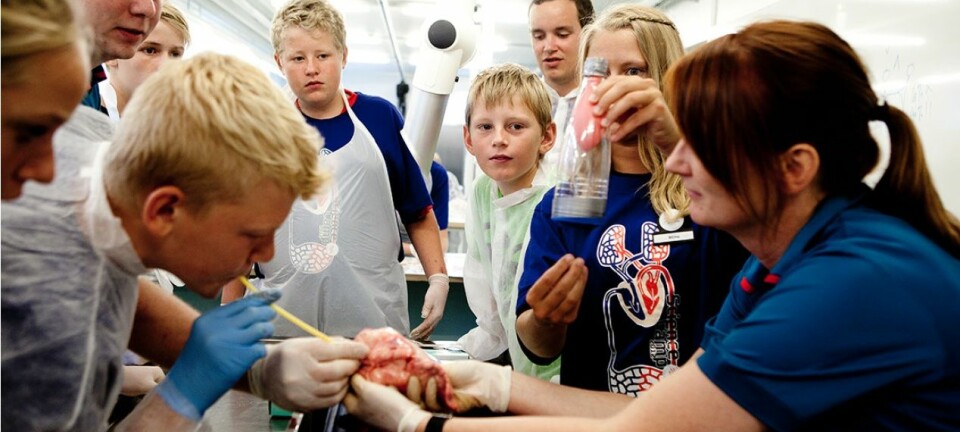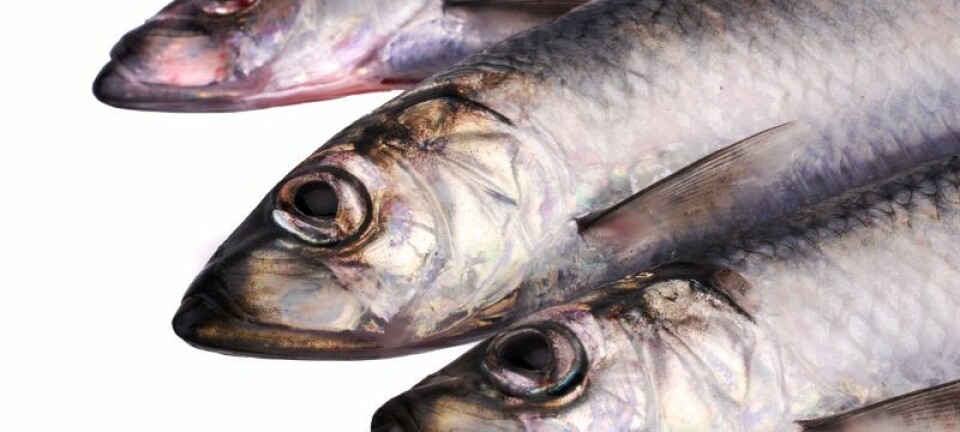
Come face to face with the world's most bizarre research
Be ready to experience the strangest and most bizarre research in the world when the notorious Ig Nobel Prize show comes to Copenhagen this summer.
What are the weirdest, most ridiculous, and seemingly pointless things researched by scientists? We’d say farting fish, a convertible bra that also functions as gas mask or homosexual, necrophile ducks are among them.
It may sound crazy but each of these ‘research projects’ have just received a well-reputed research prize. OK, 'well-reputed' may be a slight exaggeration but it is true that they all won an award: the Ig Nobel Prize.
The Ig Nobel is awarded every year at Harvard University, an event marked by festivities and high spirits. And while some people say the prize is a parody of the highly respected Nobel Prize, the Ig Nobel actually does have a noble purpose: it’s awarded to research that makes us laugh -- in order to make us think.
The Ig Nobel Prize Show visits Copenhagen in connection with the Euroscience Open Forum Conference that spans from 21-26 June.
"The Ig Nobel Prize has some small tours, where previous prize-winners talk about their research, which is why I've been invited to Copenhagen," says Magnus Wahlberg, an associate professor in marine biology at the University of Southern Denmark. He received the Ig Nobel Prize for his pioneering work on fish farts. Yes, fish farts.
"Marc Abrahams, who founded the Ig Nobel Prize, will be there," says Wahlberg. "And former prize-winners, including myself, will talk about our research and what it’s like to be awarded the prize."
Gas mask bra leads to disturbing second thoughts
The Ig Nobel Prize Show, part of the Science in the City Festival, will take place on Sunday 22 June and Tuesday 24 June from 7 pm to 9 pm in the Carlsberg City District, centrally located in Copenhagen. When arrived, the public can expect research presentations par excellence.
In 2009, Dr Elena Bodnar from the USA, a doctor of medicine and a catastrophe researcher, won the health category for a bra that, during emergencies, can be turned into two gas masks.
"It may well be that this doesn't sound very serious, but if there's a poison gas attack in Denmark we’d be happy to have some of these bras," she says. "There is one gas mask for each person living in Denmark but do we know where they are? And would we be able to get hold of them before it's too late?"
Wahlberg agrees.
"The idea is that all women in Denmark would wear a gas mask bra and during a gas attack they would use one bra cup for themselves and give the other to the man beside her," he says. "Bodnar got the idea for gas mask bras after the catastrophe at Chernobyl where nobody was properly prepared. So you may well laugh at this research initially but it makes us to think -- because how are we going to survive a gas attack?"
Beetles navigate by the stars
A team of researchers at Lund University in Sweden discovered that beetles rolling a large ball of dung in front of them navigate by the stars. They were awarded the biology prize in 2013.
"No-one had ever heard of insects that can navigate by the stars before. The discovery has not had anything in the way of political consequences -- but it got us thinking, because it's quite incredible!" says Wahlberg.
He believes that the Ig Nobel Prize is a brilliant concept because at first, it seem to confirm any prejudices people might hold about the unimportance of some research – but then it surprises by actually showing how important and fantastic the very same research can be.
"As a researcher you're often asked: 'What can your research be used for? Why do you work on that?'" says Wahlberg. "But when people think about it, they realise that research is very often quite important although it can also be fun!"
Herring farts set off a political crisis
Wahlberg's own research in fish farts can also seem ridiculous at first glance. But really, it could have prevented a diplomatic crisis between Sweden and Russia -- and saved the Swedish state from expanding their defence budget by several million US dollars.
"The Swedish defence ministry asked us to find the explanation for some sound measurements from the 1980s which they were dead certain came from Russian submarines," says Wahlberg.
When the sounds were initially discovered it caused a Swedish submarine hunt and the Minister of Foreign Affairs officially criticised Russia for sending submarines into Swedish territorial waters. But when the sounds continued after the end of the cold war, people realised there had to be another explanation, says Wahlberg. “The Russian submarine fleet was docked so the sounds had to come from something else.”
A commission was set up to investigate and Wahlberg’s research group were given the task of solving the mystery of the submarine sounds. They travelled to Stockholm and listened to the 'secret' sounds – and were surprised by what they heard.
“We immediately ruled out that these were sounds from submarines,” he says. However, they still didn’t recognise the source so Wahlberg brought the recordings to his lab to find explanations. He eventually found it and it turned out to be a most unlikely source.
“We discovered that the sounds came from herring who farted," he says.
"If only we’d described the fish farts sooner, we could’ve kept the Swedish defence budget a little lower and Sweden and Russia would have had a better relationship towards the end of the cold war. The whole affair caused a diplomatic crisis between the two countries," says Wahlberg.
Sometimes, even the strangest results are important, he adds.
Meet the world's first homo-necrophile mallard duck
Perhaps the most bizarre feature of the Ig Nobel Prize show will be presented by the Dutch researcher Kees Moeliker, who has described an instance of homosexual necrophilia among mallard ducks.
"He's a very competent ornithologist who one day found a dead – male – mallard duck at the edge of a lake. As he sat and looked at it, a second male mallard duck climbed on to the first one and mated with it. This was the first registered case of homosexual necrophilia in the animal kingdom," says Wahlberg.
"You can debate whether this discovery is important or not. But it does cause us to revise our views on sexual deviation: if that type of behaviour is natural among animals, what is natural among humans?"
Not quite as noble as the real Nobel
It’s courageous for Moeliker, Wahlberg and the other researchers to stand up and allow themselves to be associated with the Ig Nobel Prize. In fact, some researchers turn down the prize because they feel that their work is being ridiculed.
"But that's not my experience," says Wahlberg.
"What's good about the prize is that it is awarded to serious work – it's not a farce. Of course it's not quite as noble as the real Nobel Prize. And you don't get any money,” he says. “But it does generate a lot of attention.
Wahlberg was awarded the Ig Nobel Prize in the biology category in 2004.
"You get a lot of exposure -- and I've had the opportunity to talk about my research many times. At the same time I believe the Ig Nobel Prize is a good ambassador for science. Research should be fascinating and fun as well as having a purpose. The Ig Nobel Prize combines these elements very well, so I'm very glad to have been awarded the prize."
The Ig Nobel Prize show comes to Copenhagen from June 22-24 this year. The show is free to attend.
Translated by: Michael de Laine










